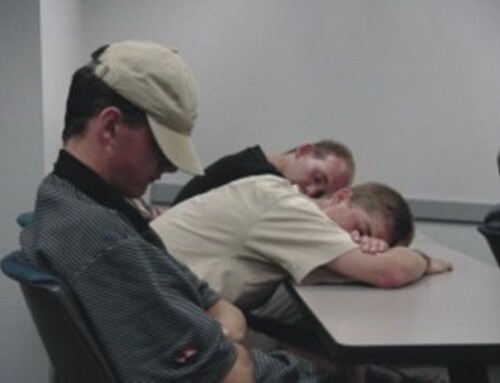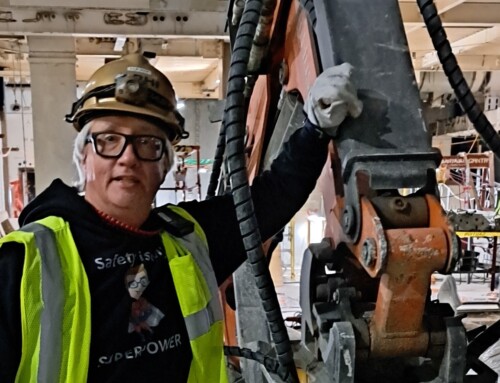“I didn’t realize you were supposed to (fit any requirement here). “I didn’t put that there!” “Tom said we didn’t have to wear a mask unless we are . . . etc. etc. etc. etc.”
The saying “I wish I had a nickel for (every time someone gave me a safety excuse.)” applies to my long career as a safety and health professional.
Most were lame.
So, what is the best way to handle safety violation excuses? Here are three ways that I found compelling in getting across your point without causing bad feelings:
1) Don’t be mean. You can’t be lighthearted if the violation is serious, perhaps even dangerous neglect, or a habitual repeat offense. But you don’t have to holler at the person or say things like, “Don’t you know better?”And be sure not to insult the violator and stay calm. If I know the person well, I’ll shake my head, raise my eyebrows, and put on a wry smile before saying anything to show I’m not mad but aware that something is amiss.
2) Let them explain their position before you say much. I’ll say, “Well, what’s going on here?” or something similar. That’s a widely open-ended question. But most times, they know what you’re talking about. (If they honestly don’t, maybe they haven’t been trained and have a valid reason for the violation.) Listen intently and let them explain.
3) Now, your response will depend on what they say. But at a minimum, respond by telling them why the precaution is crucial if you believe it is an innocent oversight. I usually add something lighthearted to my reply before I leave them or talk about personal matters (i.e., “How’s your son doing in football?’). This shows you care about them beyond just being an employee who the safety cop (you) must admonish for their misbehavior.
4) An important follow-up: The next time you see the person and they are complying with the rule, make sure you thank them or at least acknowledge their positive behavior. (If I’ve worked with the person for a while, I might say something funny like, “Wow, you do care about me!”)
Our work as safety and health professionals often includes coaching and, on fewer occasions, counseling and rarely discipline. We should know how to handle all three with thoughtful finesse.
‘till next time
Hawk
PS: Learn insightful and practical tips on becoming a Safety Super Star Presenter and a Dynamo Safety Meeting Host. Check out my TicToc account @makesafetyfun https://bit.ly/49lljmN or my YouTube Channel “Make Safety Fun” https://bit.ly/3I5VgVf





